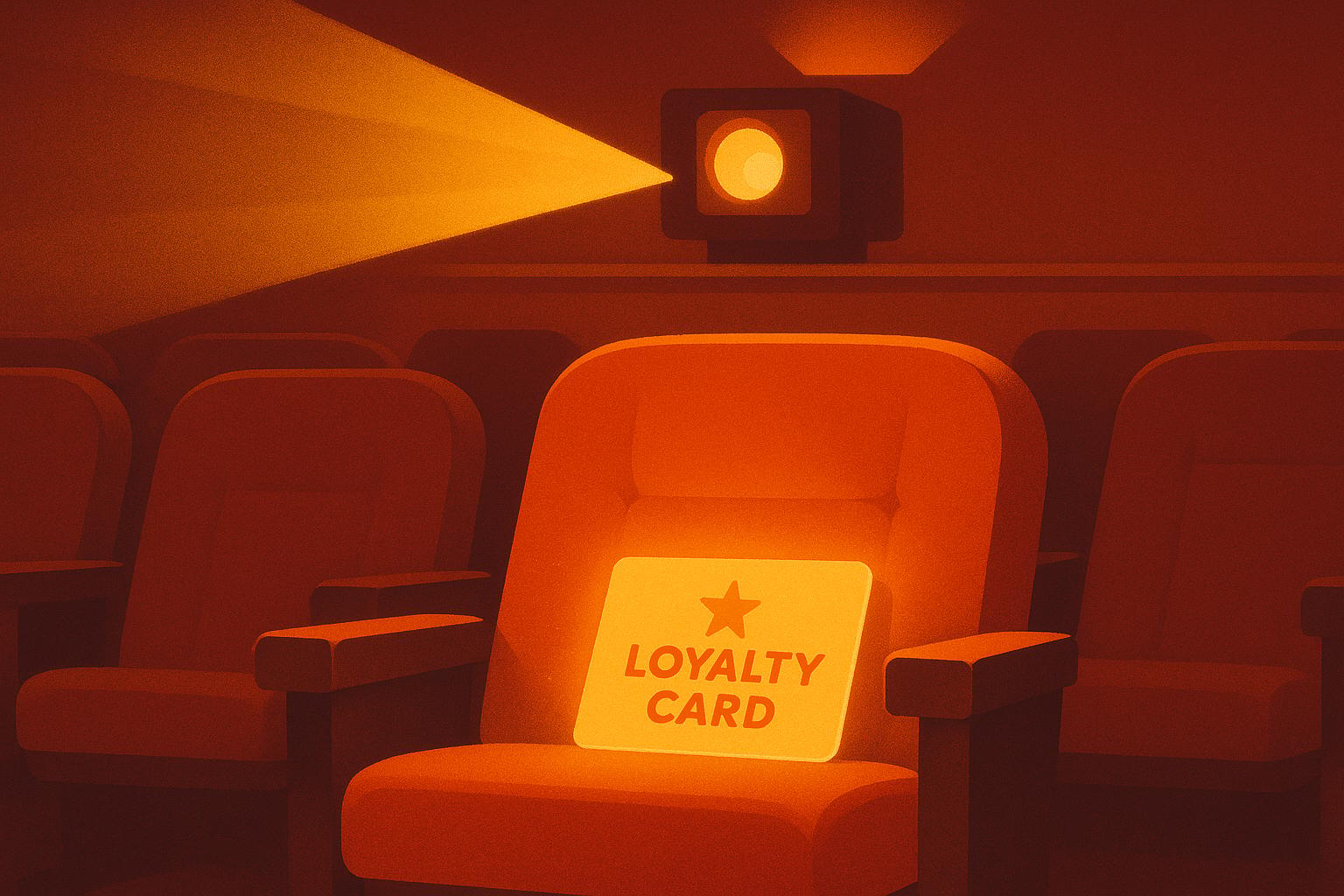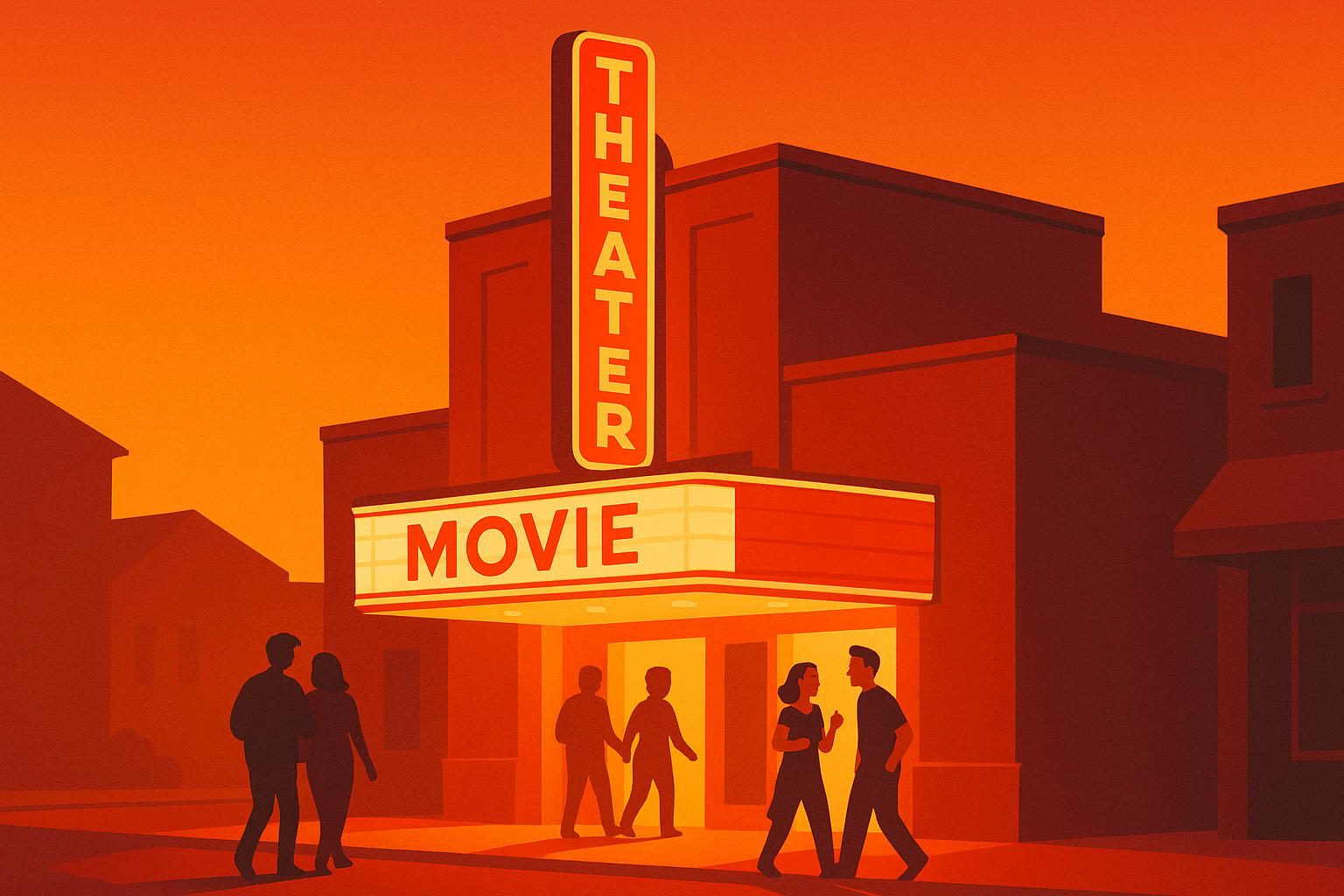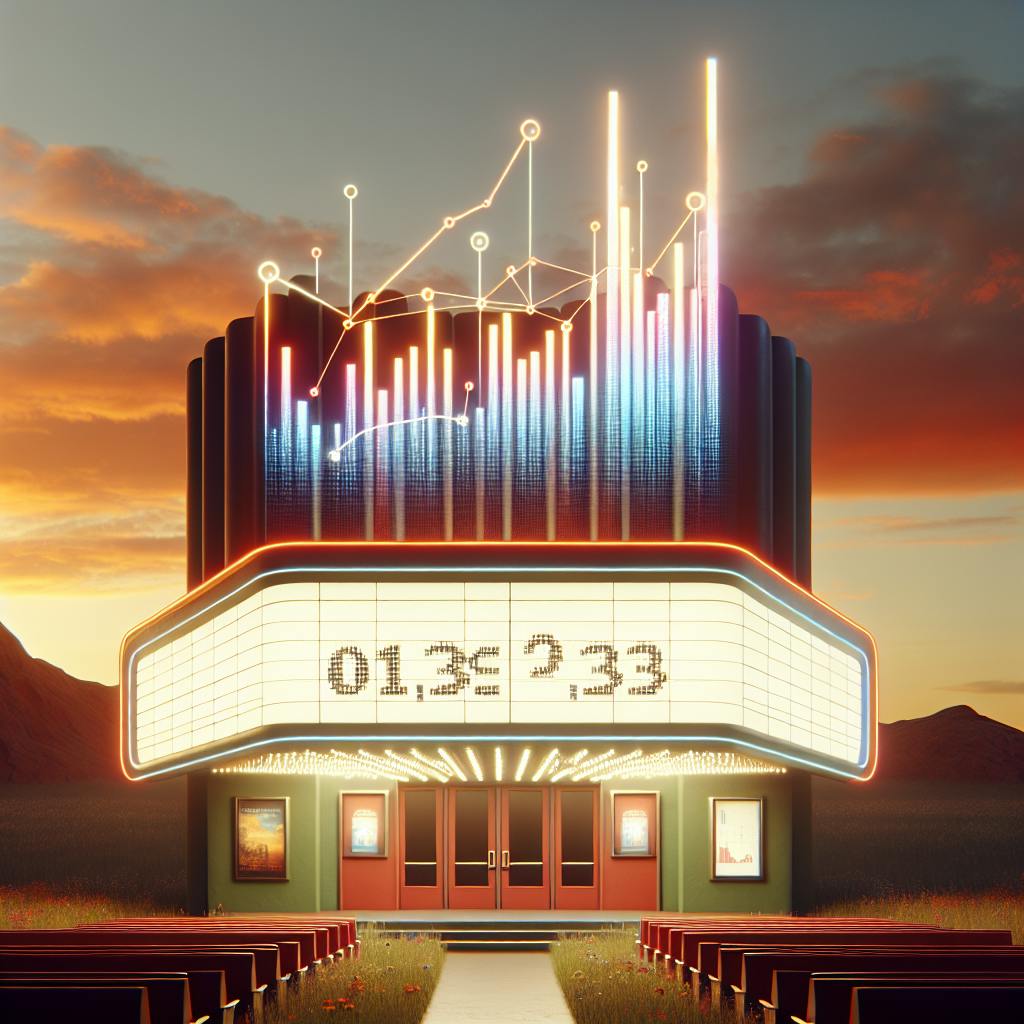Finding the right movie ticket software is crucial for theaters to efficiently manage operations and maximize revenue.
In this post, we'll explore the essential features - like intuitive interfaces, reliability, and integration - that define effective cinema management solutions capable of streamlining complex tasks and driving box office success.
You'll see key considerations around optimizing user experience, ensuring system uptime, integrating with other tools, and more to equip your theater for long-term growth.
Introduction to Movie Ticket Software
Movie ticket software plays a vital role for movie theaters and cinemas. It allows them to sell tickets online and in-person, manage showtimes and seating charts, track attendance and sales, and deliver convenient experiences for moviegoers. As the demand for exceptional digital experiences increases, having robust and intuitive cinema software is crucial.
This article explores the key capabilities effective movie ticket software solutions provide.
Exploring the Role of Cinema Software in Theaters
Cinema software has become an indispensable tool for theaters in the digital age. It enables them to:
- Sell tickets online, on mobile devices, and at the box office through a unified platform
- Create showtimes, manage theater seating, and schedule movies and events
- Gain insights with real-time sales and attendance analytics and reporting
- Engage audiences with trailers, loyalty programs, and email/SMS marketing
- Optimize operations from concession inventory to staff management
By centralizing these complex tasks into a single, easy-to-use cinema management system, theaters can focus on creating an incredible experience for moviegoers.
Advantages of Implementing Cinema Management Software
Investing in cinema software delivers multifaceted benefits:
Increased Productivity
- Automates tedious tasks like settlement reports and inventory tracking
- Provides mobile access for managers to handle operations remotely
- Allows staff to speed up transaction times at the box office
- Offers omnichannel ticket purchasing online, mobile app, kiosks
- Simplifies seat selection with interactive theater maps
- Enables personalized communication through loyalty programs
Greater Revenue
- Drives incremental sales by making self-service ticketing available 24/7
- Provides data to optimize pricing strategies and theater utilization
- Integrates concessions and merchandise sales into total revenue
As consumer expectations advance, cinema software has become indispensable. The right solution empowers theaters to increase efficiency, engage audiences, and maximize profits.
What software is used for ticket booking?
The most popular and effective ticket booking software and systems for cinemas include:
- Freshdesk - A cloud-based customer support software with built-in ticketing features like automation rules, SLAs, and custom ticket forms. Helps streamline cinema ticket inquiries and requests.
- Zendesk - A customizable ticketing platform to manage all cinema ticket sales channels in one place. Comes with advanced reporting to identify sales trends.
- Zoho Desk - An affordable cinema ticketing solution to track sales and engage customers. Offers custom ticket workflows and automation.
- HubSpot - An all-in-one software for cinemas to sell tickets online, run targeted email campaigns, analyze data, and more.
- HappyFox - A cinema ticketing system with strong automation and customization. Supports omnichannel sales and has a native mobile app.
- Jira - A project management platform cinema teams can use to organize ticket requests and tasks. Features agile workflows and custom fields.
These cinema ticketing systems help manage customer relations by routing ticket requests to the appropriate cinema department. Key features include automation, custom forms, reporting, omnichannel support, and workflow management.
What is the movie ticket booking system?
A movie ticket booking system is a software platform that enables cinemas to sell movie tickets online. Key features of an effective movie ticket booking system include:
- Intuitive user interface: Allows customers to easily search movies, check showtimes, select seats, and complete purchases. Optimized for mobile and desktop.
- Real-time availability: Displays up-to-date seating charts and ticket availability to customers. Syncs with cinema databases.
- Payment processing: Securely processes credit cards, mobile wallets, and other payment methods. Integrates with payment gateways.
- CRM and analytics: Tracks customer data and purchase history to enable loyalty programs, targeted promotions, and data-driven decisions. Provides cinema sales and attendance analytics.
- API integration: Seamlessly connects with cinema POS software, websites, mobile apps via APIs to enable online ticket sales across all channels.
- Reliability and support: Built on robust infrastructure with 99.9% uptime and 24/7 customer support to ensure smooth operations.
By implementing an online movie ticket booking system, cinemas can tap into the growing demand for convenient digital ticketing while gaining data-driven insights into customer behavior and sales performance. The right software also creates opportunities to boost revenue through upsells and cross-sells.
How to make movie tickets DIY?
Making your own DIY movie tickets can be a fun craft project or party activity. Here are some tips:
- Choose your ticket paper. Construction paper, cardstock, or scrapbooking paper works well. Go for a heavier paper so it feels substantial.
- Add graphics and text. Make tickets feel authentic by including details like "Admit One" text, your party name, date, time, movie title, etc. Print out text or images and glue in place.
- Get creative with edges. Use decorative scissors like scallops or zig zags to jazz up ticket edges. Pinking shears give a nice serrated look.
- Make it special. Personalize tickets with guest names. Use a hole punch and add ribbon. Stamp tickets with custom rubber stamps. The options are endless!
- Set up a ticket booth. For parties, set up a table with your homemade tickets and "sell" them to guests as they arrive. Appoint some ticket takers to tear and collect stubs too.
With some simple supplies and creativity, you can easily craft custom DIY movie tickets for any cinema-themed event or decoration. Making them yourself lets you control the entire look and feel.
sbb-itb-b1b0647
What is Vista ticket management system?
Vista is an integrated ticketing and concessions management system designed specifically for cinemas and movie theaters. It consists of three key components:
Point of Sale
The Vista Point of Sale allows cinema staff to quickly and easily sell movie tickets and concessions to customers. Key features include:
- Intuitive interface for rapid ticket and concession sales
- Integrated credit card processing
- Flexible pricing and promotions configuration
- Real-time sales and inventory reporting
Kiosk
Vista Kiosk allows customers to purchase tickets and concessions themselves using self-service kiosks. This helps reduce lines and waiting times at the box office. Customers can also use Vista Kiosk to pick up pre-paid bookings.
Back Office
Vista Back Office provides cinema managers with the necessary tools to efficiently run their theaters day-to-day. Key back office features include:
- Film and event scheduling
- Staff work shifts management
- Detailed sales analysis and reporting
- Inventory and stock level monitoring
- Customer database and loyalty program management
In summary, the Vista platform offers a complete cinema management and point of sale solution to help theater owners sell more tickets and concessions, engage customers, and optimize operations.
User Experience: The Frontline of Movie Ticket Software
Modern movie ticket software needs to have certain key features to meet the needs of today's movie theaters and create a smooth experience for customers.
Designing Intuitive User Interfaces
An intuitive user interface (UI) is crucial for both theater staff and customers. The UI should be clean, uncluttered, and easy to navigate across devices. Some best practices include:
- Leveraging familiar UI elements like menus, icons, and navigation patterns
- Optimizing for touch on mobile devices
- Allowing for one-click access to key pages like showtimes, theater info, and online ticketing
- Using visual cues, color contrasts, and typography to guide the user experience
- Ensuring accessibility features for those with disabilities
An intuitive UI makes the software more user-friendly for staff and customers, leading to higher engagement, sales, and satisfaction.
Ensuring a Seamless Online Booking Process
The online booking process must be quick, seamless, and mobile-friendly. Key aspects include:
- Allowing ticket purchases in just a few clicks with pre-filled customer data
- Integrating smooth payments via mobile wallet, saved cards, and popular gateways
- Providing clear confirmation pages and email receipts
- Enabling easy seat selection from interactive theater maps
- Allowing customers to store payment methods and quickly rebook
Optimizing online booking boosts impulse purchases, leads to more ticket sales, and delivers convenience that today’s consumers expect.
Personalization and Customer Engagement
Smart movie ticket software leverages data to personalize content and engage users. Tactics include:
- Building detailed customer profiles based on activity and preferences
- Crafting personalized homepage layouts highlighting relevant movies
- Triggering behavioral-based emails with custom recommendations
- Segmenting users for targeted push notifications about new releases, promotions, etc.
- Integrating loyalty programs and special offers based on customer data
Personalization boosts engagement, satisfaction, and sales by catering to each customer’s unique tastes and preferences.
Mobile Ticketing: A Necessity in Today's Market
With rising mobile usage, mobile ticketing is now a must. Key capabilities include:
- Allowing ticket purchases, seat selection, and payments via mobile apps
- Generating scannable mobile barcodes to expedite theater entry
- Syncing mobile tickets across devices in case customers switch devices
- Building apps for both iOS and Android with full-screen and widget modes
- Providing self-serve features for rebooking, upgrades, concessions orders, etc.
Mobile ticketing provides flexibility and convenience for an increasingly mobile-centric customer base.
Operational Efficiency with Cinema Management Software
Cinema management software can significantly improve the operational efficiency of movie theaters in various ways. By automating manual tasks and centralizing data, cinema software allows theater staff to focus on delivering better customer service while optimizing day-to-day operations.
Automating Ticket Sales and Showtimes Scheduling
Cinema management software automates the process of selling tickets and scheduling showtimes, saving theater staff considerable time and effort. Key features include:
- Online and mobile ticketing to facilitate advance ticket sales
- Dynamic showtime scheduling based on movie demand, theater capacity, staff shifts etc.
- Automatic seat allocation and management for each showtime
- Payment gateway integrations for secure online payments
Such automation eliminates the need for manual scheduling and reduces human errors, allowing staff to focus on enhancing the moviegoer experience.
Dynamic Pricing Strategies for Maximizing Revenue
Sophisticated cinema software enables dynamic and flexible pricing capabilities to help theaters maximize ticket sales revenue. Key pricing features include:
- Advanced algorithms to adjust ticket prices based on showtime demand
- Segmented pricing for different customer groups (students, seniors etc.)
- Special promotional offers and loyalty program discounts
By leveraging real-time data insights, theaters can calibrate pricing to optimize both occupancy levels and profit margins.
Comprehensive Reporting for Informed Decision-Making
Robust cinema management software provides theater owners and managers with detailed sales reports, attendance metrics, customer profiles and more. Key reports include:
- Ticket sales data showing top-performing movies
- Customer attendance patterns by time, location and other variables
- Concessions and merchandise sales reports
- Customer demographic data and purchase histories
Access to such comprehensive data facilitates informed, analytics-based decisions regarding programming, staffing, promotions and overall strategy.
Integrating Cinema Software with Other Business Systems
To maximize efficiency gains, cinema software should integrate seamlessly with a theater's other core systems like:
- Point-of-sale (POS) systems
- Customer relationship management (CRM) platforms
- Accounting software
- Loyalty/rewards programs
- Third-party ticketing services
Smooth integration eliminates duplicate data entry and connects vital customer and sales data across platforms, creating a centralized hub for managing theater operations.
With automation, pricing optimization, robust reporting and deep integrations, cinema management software delivers significant operational efficiency benefits to help theater businesses thrive. The right software becomes an invaluable asset for theater owners and managers seeking to improve productivity, profitability and the moviegoer experience.
Ensuring Reliability in Movie Ticket Software
As ticket sales represent the core revenue stream for theaters, the software system must provide exceptional reliability and uptime. Here are some key strategies for achieving reliability in movie ticket software:
Building Redundancy and Ensuring System Uptime
- Implement load balancing and failover systems to distribute traffic across multiple servers. This prevents single points of failure.
- Use a cloud-based infrastructure with automatic scaling capabilities. This allows the system to handle spikes in traffic.
- Set up real-time monitoring and alerts for system metrics like uptime, response times, error rates etc. Rapid response is key.
- Regularly back up data and configurations off-site. This aids recovery in case of disasters.
- Establish comprehensive business continuity and disaster recovery plans for minimizing downtime.
Proactive Maintenance and System Updates
- Schedule regular system maintenance during off-peak hours to minimize impact.
- Promptly install security patches, firmware and software updates. This reduces vulnerabilities.
- Continuously optimize database indexes, queries, server configurations etc. to improve performance.
- Monitor system logs to identify issues early. Determine if additional resources are needed.
- Validate infrastructure changes in staging environments prior to production deployment.
Scalability to Manage High-Demand Periods
- Architect the system to easily add more app servers, database replicas etc. as needed.
- Stress test the infrastructure to establish scaling thresholds for major events.
- Implement caching mechanisms like CDNs to efficiently handle spikes from big releases.
- Use an auto-scaling cloud infrastructure that can dynamically provision resources based on load.
- Throttle non-essential background tasks during peak loads to conserve resources.
Prioritizing Cybersecurity in Ticket Transactions
- Encrypt sensitive customer data like payment information in transit and at rest.
- Enforce strict access controls and principle of least privilege to access systems.
- Validate inputs and sanitize outputs to prevent common web application threats.
- Use security tools like WAFs, vulnerability scanners and penetration testing to identify risks.
- Comply with industry standards like PCI DSS for securely processing card payments.
- Implement strong authentication mechanisms like MFA to secure admin access.
Reliability is crucial for movie ticket software to maximize uptime and transaction volumes. The strategies above help build redundancy, enhance security, facilitate scalability and simplify maintenance - all vital for ensuring high reliability.
Conclusion: Integrating Cinema Software for Success
Adopting a robust cinema management software solution can provide movie theaters with essential capabilities to drive success. The key features to look for include:
Recap of Essential Software Features
- Intuitive interfaces: Ensuring a seamless user experience for both staff and customers is crucial. Software with intuitive dashboard, POS, and mobile interfaces enables efficient operations.
- Multi-channel sales: The ability to sell tickets across multiple channels - online, mobile apps, POS, call centers - is vital to drive revenue.
- Dynamic pricing: Software with dynamic pricing helps maximize yield by adjusting ticket prices based on time of day, seat location etc.
- Detailed analytics: Actionable analytics on sales, concessions, campaigns etc. provide data-driven insights to optimize operations.
The Importance of Software Reliability
Reliable cinema software that delivers consistent uptime is essential to avoid disrupted operations and poor customer experiences during peak seasons. Factors like:
- Robust infrastructure
- Rigorous testing
- Proactive monitoring
help ensure reliability even during surges in traffic.
Maximizing Revenue with Cinema Management Tools
By centralizing operations, enabling multi-channel sales, providing actionable insights, and driving customer engagement, cinema software becomes a potent revenue driver. Theatres can leverage such tools to:
- Increase average transaction size
- Optimize pricing strategy
- Create targeted campaigns
- Boost concession sales
to ultimately maximize box office earnings. With the right solutions, substantial revenue growth is achievable.


